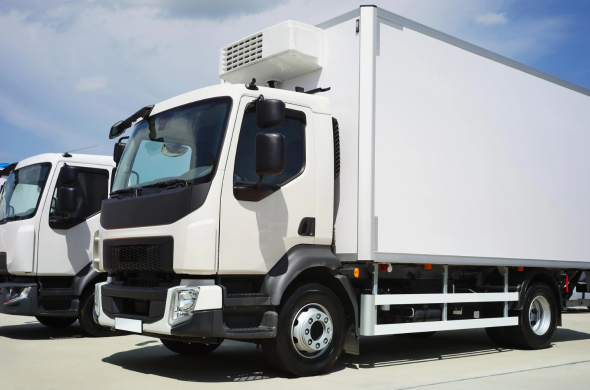In locations such as the United Arab Emirates (UAE), agriculture is becoming a prominent component of the economy. In an area noted for its low rainfall, high temperatures, and lack of natural waterways, which leads to poor soil quality, it may not seem that agriculture plays such an important role in the region's economy. Yet, technology facilitates that growth.
While artificial intelligence (AI) may still be new to some areas of the agricultural industry here, there are numerous ways technology, in general, is directly contributing to food stability and lower overall costs for consumers. Consider the following applications for AI in the region and how working with an advisor could help your next expansion into technology.
Precision Agriculture
Precision agriculture is perhaps one of the most effective strategies for directly impacting the region's agricultural industry. Regions around the world that have implemented AI-driven applications in this area seek crop yield increases of as much as 30%.
Crop Monitoring and Disease Detection
Disease detection facilitates faster response times, reducing the risk of widespread crop loss. With AI, it is easier for farmers to pinpoint crop disease early on, well before it becomes invasive and problematic to yields. For example, the detection of an invasive insect early on protects those crops from infiltration. Another application could include identifying discoloration or damage to crops through the use of AI technology, allowing farmers to determine what could be wrong.
Autonomous Farming Equipment
The utilization of autonomous farming equipment frees up critical labor forces and creates a solution that can farm and manage plant health without the need for human intervention. Utilizing robotics, it is possible for even vertical farming to apply autonomous equipment to handle the job with ease and precision, mitigating risks associated with lack of human attention or the implementation of human error into critical tasks.
Smart Irrigation Systems
In a region where water is so critically preserved, applying just a precise amount, based on the specific needs of that plant or crop, could create water-saving efforts, reducing costs while also improving the way plants respond to conditions. Precision smart irrigation systems also utilize data from various sources, including current climate and moisture conditions, to enhance how much irrigation to apply, creating a perfectly hydrated but not water-wasting solution.
Predictive Analytics for Weather and Crop Yield Forecasting
AI can take massive amounts of data and process it within moments, creating clarity and providing a very systematic solution for virtually any need. For example, with predictive analysis in crop yield, AI can work to identify and eliminate weeds. It can work to provide soil moisture monitoring, applying necessary strategies to improve yield. At the same time, weather-based analytics provide farmers with more time to take action to minimize potential damage or, in some situations, to apply moisture or nutrients based on upcoming changes to weather conditions. With the ability to process so many data points so quickly, AI takes the management of crop yields and weather forecasting to a more precise level.
Supply Chain Optimization and Market Forecasting
Another core component that works alongside agricultural consulting solutions is the focus on supply chain optimization and market forecasting. It enables agricultural businesses to better manage their inventory of raw materials and available crops based on expected demand changes within the market. Companies are now using AI strategies, for example, to enhance the supply chain to ensure more effective, faster distribution to where products are needed, reducing waste while they do so.
Soil Health Analysis and Management
Soil health, not just moisture levels, must be maintained in areas like the UAE, where soil quality is poor overall and nutrient application expensive. With AI-enabled data gathering from plants and soil conditions, farmers minimize the risk of over-fertilizing crops while minimizing the risk of not applying enough nutrients. More so, AI can handle real-time soil health analysis, allowing farmers to make significant and immediate decisions about how to improve conditions as needed based on that day’s specific nutritional makeup and overall condition.
Livestock Health and Management
Agricultural use of AI is also stretching into the management of livestock. AI can apply many of the same standards of application of previously mentioned crop-based strategies directly to livestock. That includes using AI imaging to look for signs of injury or illness. It includes monitoring animal health and overall well-being. AI may help to analyze animal movement to pinpoint areas of concern or provide real-time monitoring of livestock to gauge health so that livestock may be properly segmented.
Agricultural Robotics
Even in the UAE, labor forces are a constant problem within the agricultural industry. Yet, robotics may help to reduce the demand for human-powered work, especially in tasks that can be easily automated. AI can provide robotics with more data in real-time so that the system can make decisions more readily and based on the objectives the farmer sets, whether that is color-related or even specific size, to determine when a product should be harvested.
AI In Sustainable Agriculture and Environmental Conservation
It is also critical to focus on AI applications that directly contribute to reduced natural energy use, lower carbon emissions, and better overall environmental protections. AI provides more data that farmers can use to make better decisions not just for crop production but also for conservation efforts.
Finding the Solution for AI in Your Agricultural Operation
Those looking for an opportunity to harness AI in their agricultural business will find a wide range of strategies. AI may help improve crop yields, reduce hours worked, improve accuracy, and deliver the products you want, and your customers will pay more overall.
Read our latest insights, ideas, and perspectives that explore the trends shaping the future of business and society. Our consultancy services go hand-in-hand with these insights, confirming our position as industry leaders. Get in touch to find out more about our consulting services and industry expertise.



